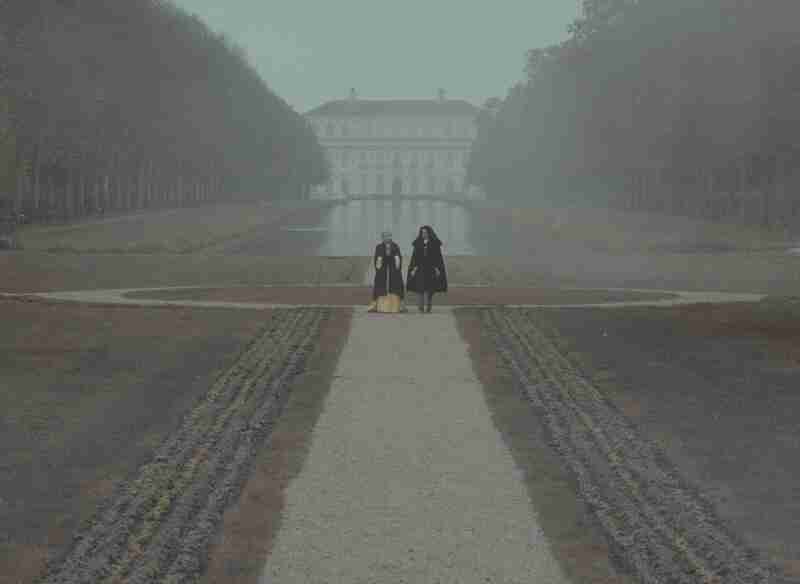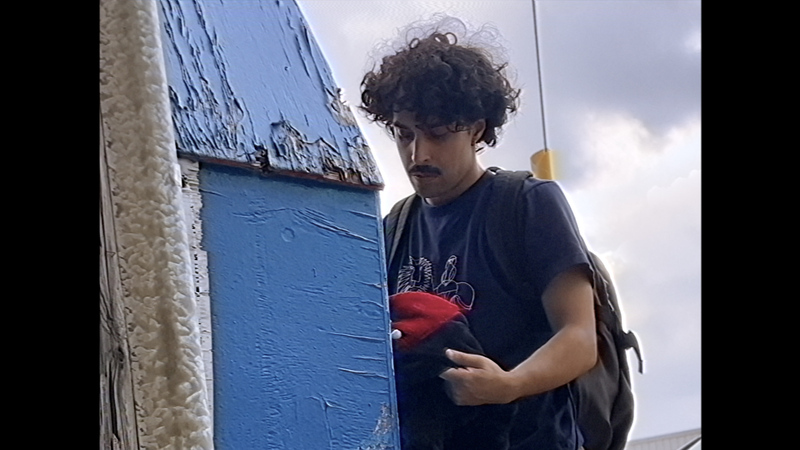
Can a Portrait Capture More Than a Face?
MOVIE REVIEW
Leibniz – Chronicle of a Lost Painting
–
Genre: History
Year Released: 2025
Runtime: 1h 44m
Director(s): Edgar Reitz, Anatol Schuster
Writer(s): Gert Heidenreich, Edgar Reitz
Cast: Edgar Selge, Aenne Schwarz, Lars Eidinger, Michael Kranz, Antonia Bill, Barbara Sukowa
Where To Watch: shown at the 2025 Berlin Film Festival
RAVING REVIEW: Capturing the mind of a philosopher on film is no easy feat. Ideas are fluid, constantly evolving, and rarely confined to a single moment. LEIBNIZ – CHRONICLE OF A LOST PAINTING tackles this challenge head-on, turning what could have been a dry historical account into a spirited, intimate exploration of thought, art, and perception. Instead of condensing the entirety of Gottfried Wilhelm Leibniz’s intellectual legacy, Edgar Reitz zeroes in one section, allowing the audience to experience the clash of minds in real time. The result is a film that unfolds like a carefully constructed puzzle, questioning the very nature of representation.
The film’s core revolves around a queen’s desire to immortalize a great thinker. Sophie Charlotte of Prussia (Antonia Bill) commissions a portrait of Leibniz (Edgar Selge), a man she deeply respects. More than a simple request for a painting, this is an attempt to preserve a presence, a connection to a mind that has shaped her worldview. The task is assigned to court painter Pierre-Albert Delalandre (Lars Eidinger), whose artistic approach values efficiency over depth. He arrives prepared with pre-painted backdrops, expecting Leibniz to simply fit within a template designed for noble figures of the time. He does not expect his subject to resist, questioning the process and the foundation of what a portrait should represent. What begins as a simple sitting quickly becomes a battle of perspectives that Delalandre has not entertained for long. Frustrated by Leibniz’s refusal to conform, the painter abandons the project.
This failure led to the introduction of Aaltje van de Meer (Aenne Schwarz), a Dutch painter whose philosophy on art starkly contrasts Delalandre’s rigid conventions. Aaltje has spent her career working under disguise, passing as a man to gain entry into a world that denies women the same artistic legitimacy. She paints as an exploration, working from darkness to light, allowing the image to reveal itself through process rather than preconception. This method immediately fascinates Leibniz, who sees a reflection of his work as a philosopher in her approach. Their sessions become less about creating a portrait and more about deconstructing how art, science, and philosophy intertwine. The film thrives in these exchanges, each brushstroke and each spoken word challenging the other’s understanding of truth.
Originally envisioned as a sweeping historical epic, the film was reshaped due to financial constraints, but what might have seemed like a limitation ultimately strengthened its impact. By focusing on a single setting and a handful of characters, LEIBNIZ – CHRONICLE OF A LOST PAINTING takes on a surprising quality, allowing its themes to take center stage.
Selge delivers a performance that is as much about restraint as engagement. His Leibniz is not merely an imposing historical figure but a man caught between his certainty and his ever-present curiosity. His silences are just as telling as his arguments, conveying the weight of someone who has spent a lifetime searching for understanding. Schwarz, as Aaltje, provides the perfect counterpoint—her character’s intuitive grasp of art challenges Leibniz’s reliance on reason, forcing him to reconsider ideas he once believed unshakable.
Beyond its philosophical and artistic musings, the film explores themes of power and gender. Aaltje’s struggles in the art world mirror Queen Sophie Charlotte’s limitations within the court, highlighting how intellect and skill are often overlooked when one is of the wrong gender. These ideas are not forcefully stated but emerge naturally through character interactions, adding depth without overshadowing the central narrative.
That said, this is not a film designed for casual viewing. Its dialogue-heavy structure demands engagement, and its steady, contemplative pace may test audiences expecting conventional period drama beats. The exchanges between Leibniz and Aaltje occasionally feel more like carefully crafted debates than spontaneous conversations, making the film more cerebral than emotionally driven.
Its ability to function on multiple levels makes LEIBNIZ – CHRONICLE OF A LOST PAINTING particularly compelling. On the surface, it is a historical drama about a lost painting, but at its core, it is about the very act of creation and interpretation. It does not attempt to simplify its subject but instead embraces the complexity of how ideas take shape. It is not a grand statement, nor does it seek to be. Instead, it lingers in the mind like an unfinished painting, full of questions rather than definitive answers. In that sense, it is exactly the kind of film Leibniz himself might have appreciated—one that values the process of thinking over the illusion of certainty.
Please visit https://linktr.ee/overlyhonestr for more reviews.
You can follow me on Letterboxd, Instagram, Twitter, and YouTube. My social media accounts can also be found on most platforms by searching Overly Honest Reviews.
I’m always happy to hear from my readers; please say hi or send me any questions about movies.
[photo courtesy of IF… PRODUCTIONS, EDGAR REITZ FILM (ERF,) FILMFERNSEHFONDS BAYERN, NORDMEDIA]
DISCLAIMER:
At Overly Honest Movie Reviews, we value honesty and transparency. Occasionally, we receive free items for review, including DVDs, Blu-rays, CDs, Vinyl, Books, etc. We assure you that these arrangements do not influence our reviews, as we are committed to providing unbiased and sincere evaluations. We aim to help you make informed entertainment choices, regardless of our relationship with distributors or producers.
Amazon Affiliate Links:
Additionally, this site contains Amazon affiliate links. If you purchase through these links, we may receive a commission. This affiliate arrangement does not affect our commitment to honest reviews and helps support our site. We appreciate your trust and support in navigating these links.



Average Rating